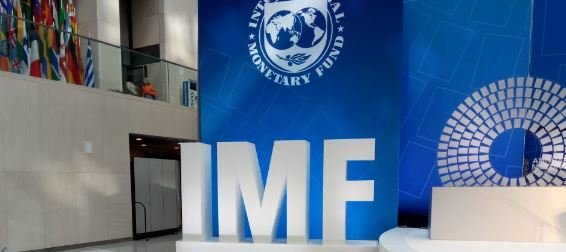[ad_1]
The International Monetary Fund (IMF) has asked the federal government to finalise securitisation of the Central Bank of Nigeria (CBN’s) existing stock of overdrafts (also known as Ways and Means financing).
This is contained in a statement issued on Wednesday after its 2022 Article IV consultation with Nigeria.
The federal government has been borrowing from the CBN through “Ways and Means”.
Ways and Means is a loan facility through which the CBN finances the government’s budget shortfalls.
In December last year, President Muhammadu Buhari requested for senate approval of the restructuring of N23.7 trillion Ways and Means Advances given to the government by the CBN.
But the senate demanded that before it could approve the request, it must have the details of what the funds were spent on.
“Directors also urged the authorities to finalize securitization of the CBN’s existing stock of overdrafts and emphasized that the CBN’s budget financing should strictly adhere to the statutory limits,” the IMF said.
“Directors encouraged a continued move toward a unified and market-clearing exchange rate by dismantling various exchange rate windows at the CBN.
“Providing clarity on exchange rate policy would help boost investor confidence, quell capital.”
Despite the current high interest rate of 17.5 percent, the IMF called for fiscal and monetary tightening to secure macroeconomic stability, combined with structural reforms to improve governance, strengthen the agricultural sector, and boost inclusive, sustainable growth.
It encouraged the apex bank to stand ready to further increase the policy rate if needed.
It also recommended the implementation of additional actions including fully sterilising central bank financing of fiscal deficits and phasing out credit intervention programmes.
REMOVE PETROL SUBSIDY BY MID-2023
IMF said that despite rising oil prices, the nation’s fiscal deficit was estimated to have widened further in 2022 due to high fuel subsidy costs.
It said that while the current account might have improved in 2022, foreign currency reserves declined because of capital outflow pressures.
It advised Nigerian authorities to deliver on their commitment to remove fuel subsidies by mid-2023, and to increase well-targeted social spending.
IMPROVE AGRICULTURAL SECTOR
The IMF highlighted the importance of improving the performance of the agricultural sector for job creation and food security.
It observed that notwithstanding the authorities’ success in containing and managing the COVID-19 infections, socio-economic conditions remain difficult.
“The spillover effects of the war in Ukraine, which have been transmitted mainly through higher domestic food prices, worsened the scarring effects of the pandemic, particularly on the most vulnerable—with Nigeria being among the countries with the lowest food security,” the IMF said.
It warned that higher international food and fertilizer prices and continued widening of the parallel market premium could culminate in the de-anchoring of inflation expectations.
IMPLEMENT GOVERNANCE AND FISCAL REFORMS
The IMF urged the Nigerian government to implement governance reforms, including delivering on commitments from the 2020 rapid financing instrument.
“Improving transparency and accountability in the oil sector is also key to strengthening governance,” the organisation said.
It said there is a need for bold fiscal reforms to create needed policy space, put public debt on sound footing, and reduce vulnerabilities.
The IMF recommended modernising customs administration, rationalizing tax incentives, and raising tax rates to the levels of the Economic Community of West African States (ECOWAS).
[ad_2]
Source link



